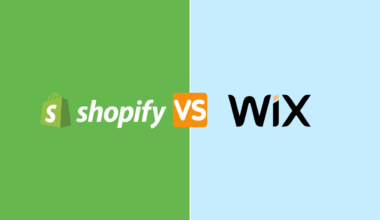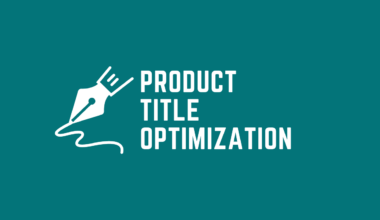Trying to figure out the right marketing strategy for your business? In that case, understanding Omnichannel vs Multichannel engagement might direct you on the right path.
In the era of versatile online and offline resources, marketing strategies have become vast. It could be chaotic to plan a proper marketing infrastructure.
Where are all the customers coming from? What’s the most active source of user engagement? And where to focus your energy? You can find answers to all questions if you focus on understanding customer behavior. And that’s where the ideas of Omnichannel Vs Multichannel come into the picture.
Both strategies use more than one communication channel to reach potential customers. However, the underlying mechanism is different.
Let’s shed some light on Multichannel vs omnichannel distribution
Table of Contents
Omnichannel VS Multichannel – An Overview!
What Is an Omnichannel Strategy?
Omnichannel Strategy of sales and marketing uses a fully integrated user engagement experience. All the communication channels such as social media, emails, phone notifications, and website notifications are interconnected under the umbrella of one platform.

For example, just consider that you have received an email from your favorite store saying, 50% off on a pair of shoes. You open the email from your laptop, visit the link, add the product to the cart and forget to checkout.
Now you’re sitting at the backseat of Uber to reach home and your phone notification pings saying, Continue Checkout before the Sale ends. You click the notification, open the app, and make the purchase.
The email and the phone notification were inter-connected. The phone notification directed you to where you left it on your laptop, giving you a seamless shopping experience.
What Is Multichannel Strategy?
In a multichannel strategy, the mechanism still uses more than one resource. However, none of them are connected to each other. Social media notifications, emails, SMS notifications might carry the same promotional message but they work independently.

From the above example, you have already added shoes to the cart. But instead of receiving a Continue Checkout notification, you receive a completely new and independent message indicating 50% Off sale .
The second notification does not know about your cart and that’s how the Multichannel strategy works.
Now that you have understood the Omnichannel vs Multichannel example, let’s get more about it.
Differences Between Omnichannel Vs Multichannel
Before going ahead, you must know that – Your business sector, target market segment, and user diversity plays an important role when it comes to deciding the right strategy. Now let’s understand what makes the two terms different from one another.
Customer vs Channel Centric Approach
Omnichannel Customer-Centric Approach
- Omnichannel is a customer-centric approach
- The main focus is on giving a seamless shopping and communication experience
- Omnichannel collects data from various platforms and gives a centralized response for the ease of engagement
Multichannel Channel-Centric Approach
- Multichannel spreads and distributes the messages across various channels
- Encourages communication via more than one platform without any restriction
- Multichannel works better if you get more engagement from all platforms
Uniformity vs Engagement
Omnichannel Uniformity
- The omnichannel strategy ensures personalized communication from all the channels
- Easy to analyze and study user behavior under a single communication point
Multichannel Engagement
- Engagement via multiple channels encourages relationships with users in the multichannel approach
- The chances of users noticing new updates are higher in Multichannel
Personalization
Omnichannel Personalization
- As omnichannel tries to use user data to create a better experience, it could become hyper-personalized
- At some point, users might not like the idea that a company knows a lot about them
Multichannel Personalization
- Since multichannel doesn’t use customizations, users might feel disconnected
- Every channel sends similar messages to the user, which might be frustrating for them
Omnichannel Vs Multichannel – Which One Comes At Top!
Benefits of Omnichannel
Data Collection & Understanding
Collecting data and analyzing user behavior gives a plus point to Omnichannel.

Understanding user interaction via each communication medium such as emails, social media, storing and tracking cookies, previous purchases, builds a detailed persona for each customer.
So basically, customizing recommendations ensure a higher conversion rate, lesser cart abandonment, and increased customer loyalty.
Campaign Designing & Customer Segmentation
Connecting all marketing mediums together gives the ability to study segments of customers.

Omnichannel unlocks the doors of knowing each customer in a better way. You can analyze the age groups, gender, geolocation, and taste in shopping for each customer.
As you can group together customers with similar tastes, it gets easy to build marketing campaigns. More importantly, targeting the right set of customers becomes easy.
Brand Visibility
One of the most beneficial things about inter-connected communication is brand visibility. Each communication channel delivers the right message to the right user at the right time.

For example, a customer has recently purchased a study table. It makes sense to recommend the suitable chair to the same customer via Omnichannel mediums.
It improves the overall shopping experience for a customer, expanding the brand visibility.
Higher Return on Investment
Aberdeen Group Inc conducted research on companies using Omnichannel strategy. The results show that these companies are able to retain 89% of customers.

The personalized approach of Omnichannel improves the quality of communication between the user and a company. So, satisfied customers become loyal and returning customers.
Altogether, the omnichannel experience boosts the ROI for the company.
Benefits of Multichannel
Expanded Reach
Your business will always have a different set of audience. Some of them will be active on Instagram and some might just be email geeks.

Multichannel allows you to expand the brand reach to all possible segments of audience via multiple platforms. Besides, you can never know which platform might work without ever trying for the first time.
So, this approach will deliver your message across various modes of communication. Eventually, your brand would reach the right people.
Increased Sales
Every business seeks financial stability. For new businesses, it might take time to generate revenue and become profitable. However, you can get there faster using multichannel marketing.

According to statistics, multichannel campaigns can generate 24% more ROI than single channel. So when you promote your products on more than one platform, chances of winning more leads expands.
Besides, multichannel engagement can also help you identify various stages of a buyer’s journey. So you can plan the time of promotion in advance to boost the outcome.
Advantage Over Competitors
It’s not surprising that your competitors are launching new promotional campaigns everyday. There is a chance that they might reach potential customers before you do.

However, there is also a possibility that your competitor is not using a particular channel where you can win the race.
So to gain the advantage over competitors, multichannel marketing would certainly be beneficial.
Marketing Potential
Customers are always looking for the easiest way to communicate. When you offer more than one mode of communication, it gives comfort and ease to people.

In addition, it gives you a diverse set of audience. Irrespective of time and location, customers have a guarantee to get in touch with the company and that improves the marketing potential.
Omnichannel vs Multichannel: Which One Should You Choose?
Still confused which strategy to prefer for your business? Let’s help you make a decision. But first, keep in mind that customers are your priority and it’s difficult to predict the next shopping pattern of a customer.
Customers spending half a day scrolling through eCommerce sites might decide to go to the offline store. And a customer who visits the offline store might take a seat and order the same product online. You will never know!
So, even a slightest discomfort or discontinuation might result in losing hundreds of customers. In such a situation, you have to pick the suitable marketing plan.
Well, choosing the strategy depends on what type of business you have and what kind of audience you are looking for. For example, if you have an eCommerce store, Omnichannel would work best. For offline stores and retails, multi-channel might become the suitable choice.
Here Are Quick Insights on Why You Should Choose Omnichannel
- Passion to build seamless eCommerce shopping
- If business would benefit from collecting and analyzing data from multiple channels
- When your promotional campaign would target a specific set of audience
And..
Here Are Quick Insights on Why You Should Choose Multichannel
- You own a physical store and want to reach maximum potential audience
- If a traditional marketing approach is more suitable for your business
- If personalized shopping experience is optional in case of your business
These factors will become the backbone of your marketing strategy. So make sure to not take these for granted.
Final Thoughts
Okay, so you might have reached some sort of conclusion, which is great.
While Omnichannel might give you better ROI, Multichannel could prove itself to be a perfect match for your business.
Your focus should be to know what your customers want. Keep it customer centric and you will figure out what works for you.
So to make the decision, start with a blend of both strategies. Make a monthly plan to analyze the result of the campaign. Maybe, you will land on an intermediate strategy. Besides, you always have to upgrade your marketing strategy as the market changes way frequently than you can ever imagine
Stay in the game open and learn from yesterday’s performance.






